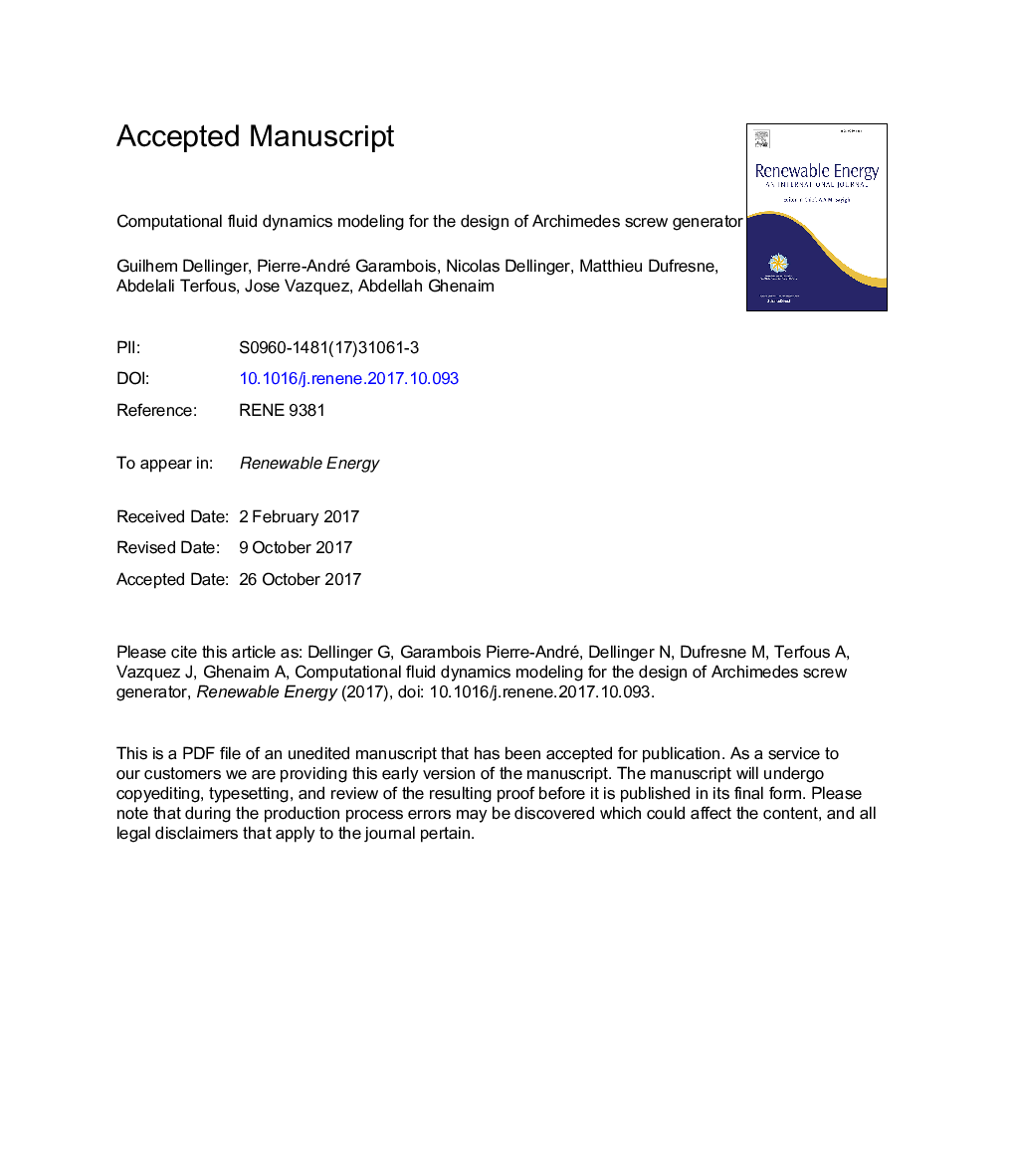| Article ID | Journal | Published Year | Pages | File Type |
|---|---|---|---|---|
| 6765149 | Renewable Energy | 2018 | 33 Pages |
Abstract
The Archimedean Screw Generator (ASG) allows transforming potential energy of a fluid into mechanical energy and is convenient for low-head hydraulic sites. As it is a new and growing technology with few guidelines for design and performance optimization, the present contribution proposes a new experimental and numerical investigation method for studying ASG performances. In order to study the structure of 3D turbulent flows and energy losses in a screw, the Navier Stokes equations a classical turbulence model are solved. As demonstrated, the strength of this method is to allow studying accurately the ASG performance only with usual coefficients in the turbulent closure models. These simulations are achieved for various flow conditions using the geometry of a laboratory-scale screw. It is shown that, the modeled values of torques and efficiencies are in very strong agreement with the experimental ones. Moreover, numerical simulation appears to be a reliable tool for predicting ASG performance which are found higher than 80%.
Related Topics
Physical Sciences and Engineering
Energy
Renewable Energy, Sustainability and the Environment
Authors
Guilhem Dellinger, Pierre-André Garambois, Nicolas Dellinger, Matthieu Dufresne, Abdelali Terfous, Jose Vazquez, Abdellah Ghenaim,
